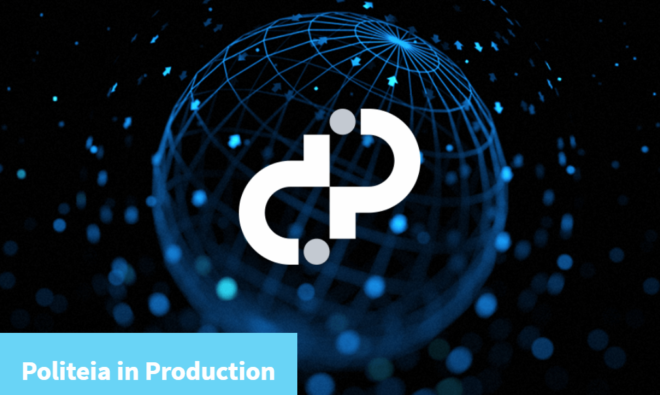Decred, which stands for Decentralized Credit, operates under a governance model that uses the votes of Decred (DCR) holders to make decisions for the future of its ecosystem. The founders of Decred came to this solution after witnessing first-hand what happens to blockchain projects when there is no clear decider for the direction of their protocols.
In Bitcoin’s case, it led to Bitcoin Gold, Bitcoin Cash, Bitcoin Private, etc…
Their solution ended up adopting a hybrid consensus algorithm model, maintaining the benefits of Bitcoin’s Proof-of-Work model, while decentralizing the decision-making process with Proof-of-Stake.
In a recent blog post, the Decred team announced that Politeia, their new proposal system, is in production on the mainnet.
Handing $23 Million to Decred Stakeholders
Politeia is a milestone that took more than 18 months for the Decred team to achieve, and it has led them to turning over a treasury of 570,000 DCR, which is currently priced at US$23 million.
Decentralizing the decision-making process of an entire blockchain organization does not automatically spell out success for its future. In fact, it could mean the very opposite.
In efforts to encourage the best out of DCR stakeholders, who now have a say in every aspect of the company’s direction, a word of caution was included in their announcement :
It is important to understand that Politeia is a very powerful tool: it can enable all manner of positive developments for Decred, but if used unwisely, it can lead to a wide variety of problems.
Yocom-Piatt used the rest of the post to relay his personal experience in managing the treasury. To provide some context for the $23 million that is now under community control, he shared that since Decred’s inception in early 2016, spending has been limited to a total of $2.8 million, or 130,000 DCR.
Sharing the spending costs in both USD and DCR highlights the importance for timing investments correctly in a volatile market. If you’re betting on DCR, be sure to read about what goes into managing a crypto project — from the manager himself. Some of the more notable segments of his 3,000 words of guidance will be summarized below.

How to Manage the Decred Treasury
Treasury Sovereignty — Don’t Get Vetoed
As Manager of the development organization, Yocom-Piatt has the power to veto the release of funds. Since he doesn’t want this to occur, he provides 2 situations that would compel him to exercise this power:
- If I feel that the release of funds would place the entire project in jeopardy or
- It would place the development organization and/or myself in legal jeopardy.
Once a smart contract is created, he will no longer be able to veto a fund release.
Open Source Ethos — Hire Developers Efficiently
Based on Yocom-Piatt’s experience hiring developers, a Decred Contractor Clearance process will be implemented that on-boards potential programming talent in an organic way, while ensuring the security of the Decred project.
Conflicts of Interest — Align Incentives
An ongoing threat within any type of business can generally be described as a conflict of interest. When the incentives of separate parties aren’t in alignment with the success of the project, avoidable problems arise.
While introducing blockchain technology into the financial industry has lessened maligned incentives, it hasn’t completely eliminated them. Decred might be the closest to accomplishing this task, but moving forward, Yocom-Piatt suggests working together with stakeholders to avoid them as much as possible.
Financial Transparency — Classify Expenses
For reasons left unstated in this article, Yocom-Piatt mentions that he “overpromised on the financial transparency front when Decred launched in February 2016, but this transparency is now on the horizon.”
Before the end of 2019, a breakdown of expenses will be made, starting from Decred’s beginning until the end of 2018. It will be classified by expense type and delivered publicly.
The process of publishing this information will be partially automated, and although it was never explicitly stated, this partial automation should ensure that all expenses will be categorized and made public moving forward.

